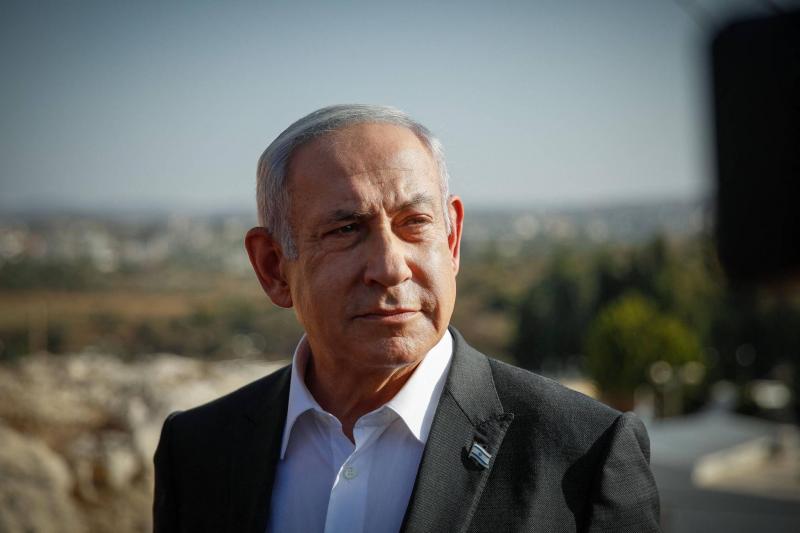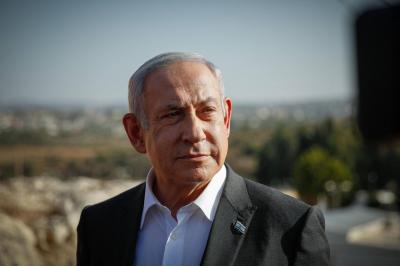The American magazine "Time" warned on Friday that the assassination of Hamas political bureau chief Ismail Haniyeh, just hours after the inauguration of the new Iranian President Masoud Bezhakian, appears to be an Israeli attempt to enhance the prospect of Iranian retaliation, fulfilling Prime Minister Benjamin Netanyahu's aim to ignite a larger war and drag the United States into it.
The magazine's report affirmed that "Israel is behind the assassination of Haniyeh, whom it described as the negotiator for Hamas and its political leader," noting that "Israel itself may pay a heavy price in a war that encompasses the entire region, as this could serve Netanyahu's interests in numerous ways."
The American report explained that Haniyeh's assassination eliminates the possibility of reaching an agreement that was imminent for a ceasefire, as Netanyahu has consistently opposed reaching an agreement that would end the war. According to the report, Netanyahu is aware that a hostage deal could lead to the collapse of his government and end his tenure as Prime Minister, and it may also accelerate his ongoing trial in corruption cases, which could lead to his imprisonment. It added that nothing could derail these talks more than eliminating the negotiator on the other side of the table.
According to "Time," Haniyeh's assassination could also trap future President Kamala Harris, as the Biden administration has held Hamas responsible for failing to reach an agreement. However, there is evidence that Harris might adopt a different approach compared to Biden's near-complete respect for Israel. She stated after Netanyahu's recent visit to Washington, "I just told Prime Minister Netanyahu, the time has come to finalize this deal."
The American report pointed out that it was difficult for Netanyahu to ignore her cold body language, her expression of sympathy for the suffering of Palestinians, and her readiness to publicly acknowledge the disruption caused by Israel.
The report argued that Haniyeh's assassination also eliminates another line of potential negotiations between the United States and Iran, as the unexpected election of Bezhakian, who based his campaign on resuming negotiations with Washington, created a small window of opportunity for renewing diplomacy between the two sides, but the escalation triggered by Haniyeh's assassination severely undermined the prospects for creating political space in Tehran for such communication.
The report continued that this conclusion might be accurate because Tehran believes that Israel acted with the blessing of the Biden administration, referring to the Iranian ambassador’s message to the President of the UN Security Council, which stated that the Israeli attack "could not have occurred without the approval and intelligence support from the United States."
According to "Time," Netanyahu has been seeking for two decades to push the United States towards war with Iran, noting that the last four American presidents have faced, at various times, pressure from Israel to attack Iran. The report added that while a significant focus has been on the Iranian nuclear program, the desire for a direct American attack goes deeper than uranium enrichment, as Israel sees Iran as a threat to the regional situation that allows Israel maximum maneuverability, including the ability to strike Syria and Lebanon with almost complete impunity.
As the magazine pointed out, Israelis believe that a nuclear deal preventing Iran from manufacturing a nuclear bomb will not shift the regional balance away from Iran. It further stated that by easing sanctions that Iran was promised under the nuclear deal with President Barack Obama, Iran's conventional capabilities may flourish.
The report highlighted that Obama's rapprochement with Iran shifted the regional power balance away from the Gulf states and Israel. Moreover, according to Israeli belief itself, this balance cannot be maintained solely through Israel's military capability but requires strict economic sanctions and American military action as well.
"Time" concluded by stating that the Israeli attack aims to provoke an Iranian reaction, which could easily escalate into a larger war that draws the United States in. The Biden administration prevented an uncontrolled escalation in April by helping to engineer a ceasefire between Iran and Israel following the Israeli raid on the Iranian consulate in Damascus on April 1.
The magazine's report concluded that "the United States can still prevent the region from sliding into chaos today, but only if it is willing to set clear and public red lines before Netanyahu."




